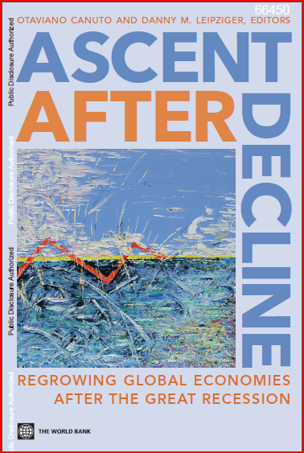The New Financial Landscape: What It Means for Emerging Market Economies
As the year 2012 unfolds, its main legacy will be its game changing impact on global financial markets. Waning global growth along with central banks’ bold monetary easing policies in advanced economies (AEs) to try to reverse it are changing market dynamics in unexpected ways, across both AEs and emerging market economies (EMEs). The combination of monetary stimulus, fiscal austerity and hesitant structural economic policy reforms in AEs, particularly in Europe, is taking the global financial system into increasingly uncharted territory. How the European Union will address the future of the eurozone, including uncertainties over its banking sector, as well as how the United States handles its Fiscal Cliff, will weigh heavily on economic balances across all economies worldwide. This seems to be a significant point of inflection on the speed of the rebalancing of economic relevance of AEs in favor of EMEs taking place over the last 12 years. Under this scenario, the ability of EMEs to handle their own fiscal, financial, and real economy weaknesses is critically tied to their ability to weather external shocks and take advantage of growing global savings while searching for yield and growth opportunities














